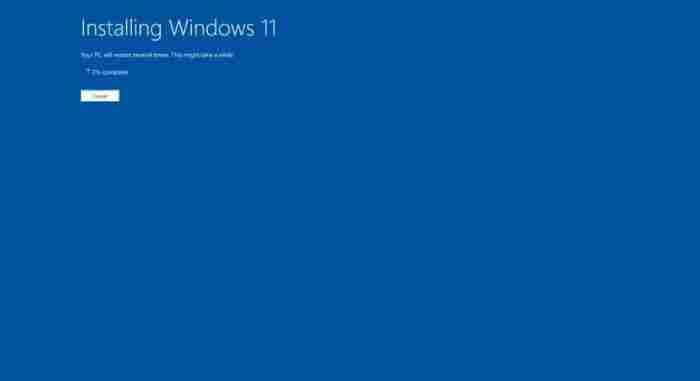Installing Windows 11 can often be accompanied by the unwanted baggage of pre-installed third-party apps, also known as bloatware. However, there’s a surprising revelation: you can bid farewell to this bloatware hassle with just two clicks. The secret lies in a simple tweak – setting your region to English (World). Rest assured. This isn’t a hoax; Microsoft has acknowledged the situation and is actively investigating it, as confirmed by a Microsoft spokesperson in response to our inquiry.
The Simplicity of the Solution
When embarking on a Windows 11 installation through an installation media such as an ISO file or the Media Creation Tool, you’re greeted with a series of setup screens. These screens prompt you to make various choices, including your preferred partition, language, keyboard input method, and region-specific time and currency format.
Interestingly, if you opt for English (World) or English (Europe) as your chosen region during installation, you’ll experience an unexpected benefit. Windows 11’s installer and the online Out of Box Experience (OOBE) will not load third-party bloatware, including infamous additions like Candy Crush and other unnecessary apps.
The Language Code Conundrum
To understand the mechanics of this unique behavior, let’s delve into the world of language codes. These codes are crucial for websites, apps, and operating systems like Windows to manage date correctly and number formatting information. In the context of this solution, the key language codes are “en-001” for World English and “en-150” for European English.
These specific language codes deviate slightly from the norm. Typically, language codes consist of a primary language subtag, like “en” for English or “eu” for Europe. In the case of World English and European English, the language codes are en-001 and en-150, respectively, following the UN protocols.
The Technicalities Behind the Scenes
During Windows 11 installation, a unique situation arises when you opt for either World English or European English as your region. Windows 11’s online and offline services cannot establish communication with the servers. As a result, the Out of Box Experience (OOBE) service fails to identify the selected region, leading to an error message labeled “OOBEREGION.” Despite this, you can comfortably proceed by clicking the “Skip” button.
Smooth Sailing Without Bloatware
The reassuring aspect of this workaround is that the installation progresses seamlessly once the “Skip” button is clicked. The most notable outcome? The absence of third-party bloatware on your freshly installed Windows 11 system.
In response to this exciting phenomenon, a Microsoft spokesperson has confirmed the company’s awareness of this behavior and its ongoing investigation.
Important Considerations
While this method effectively eliminates certain third-party Microsoft-installed apps, it’s crucial to remember that the region change should be temporary. Once Windows 11 is installed, remember to revert the region setting to its original value to ensure the proper functioning of apps such as the Microsoft Store.
Additionally, it’s important to note that this method addresses only a subset of third-party apps, primarily those installed by Microsoft. Your device may still contain apps from OEMs and other partners.
In conclusion, this nifty trick offers Windows 11 users an opportunity to bypass the bloatware-laden installation experience. By harnessing the power of language codes and cleverly navigating the region settings, you can enjoy a cleaner Windows 11 environment from the very start. As Microsoft continues investigating this phenomenon, users can use this discovery to enhance their installation process.
